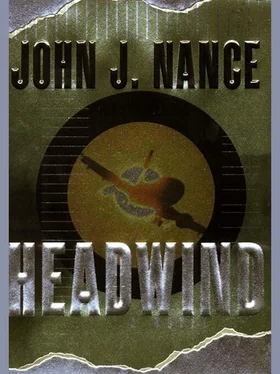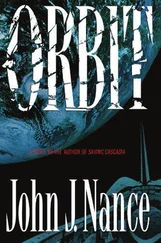“That legal process, Mike,” the President replied, his hands migrating to his hips, “is what’s flawed here. The fact that Peru could get some alleged Peruvian judge to sign an alleged legal instrument they loosely call a warrant, a thinly disguised death warrant, in fact, which President Miraflores probably wrote himself… none of that justifies using a legal structure designed to protect the world against real torturers and murderers.”
“Mr. President,” Goldboro continued, his voice steady and subdued, his eyes locked on the President, “to the rest of the world, especially the Third World nations, we are, at times, an arrogant bully, and that perception has caused us untold trouble for decades in every matter from economics and trade to our attempts to advance human rights. Most of that misperception comes from being the most powerful and economically dynamic nation on earth. But some of it has been deserved, from the necessary arrogance of the Monroe Doctrine to the unnecessary arrogance of too many CIA adventures in decades past.”
“Mr. President, we really don’t have time for this debate,” General Davidsen said.
The President turned sharply to the general. “Bill, that’s enough! I’ll tell you when I’m ready to end the debate, as you call it.”
Davidsen frowned but nodded immediately. “Yes, sir.”
The President turned back to the group. “I want to hear every bit of what any of you has to say about this. I realize this has important overtones, even though I’ll tell you I’m still convinced we’ve got to do it. But continue, Mike.”
“Very well, sir. Look, I want President Harris out of there, too. I have great regard for the man. But if you give General Davidsen over there the green light for this rescue, you’ll be feeding the lurking suspicion in the world that the United States has not changed its ways from the days when we actually did plot the overthrow of governments and the occasional assassination of dangerous foreign leaders, and tried to dictate economics and morality to everyone. I don’t believe we can afford to feed that perception, regardless of whether it’s right or egregiously wrong. Mr. President, you must focus here on the appearance of arrogance as much as the legality of the thing. That appearance, if fed by this rescue, will set us back in more ways than I could tell you in a year of briefing papers. The world needs our leadership, but to the extent we appear to be a self-serving bully to whom international laws apply only at our convenience, we seriously diminish our capacity to lead. There is a legal process here that we endorsed, and that process alone must determine whether this warrant has merit, not the fact that we can call in a C-17 and rescue whomever we want.”
“That process is clearly flawed,” Assistant Attorney General Alex McLaughlin said, “which no one realized at the time of ratification.”
Michael Goldboro shook his head. “The reality is that using legalistic interpretations to justify what we’re considering is arrogance. If we’re to be the champion of international law, it’s our responsibility to conform to its principles. In our domestic legal system, what do we tell ourselves? If a law is bad, a procedure flawed, work to change the law or procedure, not ignore or disobey it. We must honor international law with the same dedication.”
“Mr. President,” Jack Rollins said, “there’s additional activity around that gate. I really do think it’s probably now or never.”
The President turned to General Davidsen. “What’s the status, Bill?”
“That staff car is in position to intercept President Harris, sir, and the rest of them may move on the ramp at any moment. Jack’s right.”
The President turned back to Michael Goldboro. “Mike, what changes would fix this, and how would that process be served by leaving Harris to twist in the wind? Quick answer. We don’t have time for a panel discussion.”
“Modify the treaty with a specific procedure, requiring a preliminary hearing on any warrant to determine quickly and fairly whether it sets up valid charges. Each nation can hold such a hearing in accordance with its own legal system as long as it’s fair. If the evidence is insufficient, the warrant is quashed then and there and the former head of state or whoever is free to leave in a few weeks.”
“There’s a helicopter with Italian military markings landing in front of the 737,” Diane Beecher said.
President Cavanaugh nodded. “All right. Then let’s get him out of there, tell the world why, and then put on a full court press to make the case for an addition to the treaty.”
“From what position of moral authority, Mr. President?” Goldboro shot back. “The moment that C-17 lifts him off Italian soil, we have no moral authority on this issue, and we will not be able to change the treaty. Once again it’ll be the might of the United States of America making right.”
“Excuse me, Mr. President, may I add something?” General Davidsen said.
The President nodded, his eyes still fixed on his National Security Advisor.
“Sir,” Davidsen began, “we have an assumed imperfection in a treaty. He’s suggesting we essentially sacrifice a former Commander in Chief in order to be able to raise the issue that a new procedure is needed. Sir, excuse me, but that’s bullshit!”
“Okay, Bill,” the President said.
“No, sir. With all due respect, let me finish. If the Italians want this problem off their shores, and they most obviously do, then they’ll find a way to send him to Lima if we leave him there, and then we’re into a monstrous propaganda problem and maybe even the spectacle of a U.S. President facing a firing squad or climbing a gallows. It’s absurd to knuckle under to the possibility that some Third World nations will take this as an example of arrogance.”
“Alex?” the President said, looking at McLaughlin, then turning to Baker, “and Rudy… do you two think we can put enough diplomatic pressure on Italy to keep them from shipping John Harris out of the country before we can get full judicial process on the merits of the warrant?”
“I don’t understand the question, sir,” Alex McLaughlin replied.
“Nor do I,” Rudy Baker said.
“Okay, quickly. The main danger here is that Harris gets whisked away to Lima. I agree that must not happen.”
Alex McLaughlin was shaking his head. “It’s very unlikely the Italians will foster that, but they can’t control their judiciary any more than we control ours.”
“From State’s point of view,” Baker added, “the Italians are trying to help us right now. God only knows what kind of political pressures they may face in the next few hours, days, or weeks. You want certainty? Getting Harris on that C-17 right now is the closest version of it you’re going to get.”
The President turned and paced to one end of his desk in absolute silence as General Davidsen held the telephone receiver and watched him for the slightest sign of a “go” gesture. Taking a deep breath, Jake Cavanaugh turned toward his Chief of Staff and shrugged.
“The hell of this office is dealing with the reality that so often doing the right thing will yield the wrong result, while doing the wrong thing is even worse.”
“Sir?” Jack Rollins prompted.
“Mike’s wrong to discount the role of perceived power and occasional arrogance in keeping us strong. It’s still a vital tool of American foreign policy in a dangerous world. But he’s right about our responsibilities. The way to tame a dangerous world is through respectable leadership.” He shook his head. “I can’t do this.”
“Sir?” General Davidsen said, his mouth dropping open.
The President took another deep breath and turned toward the general.
Читать дальше












